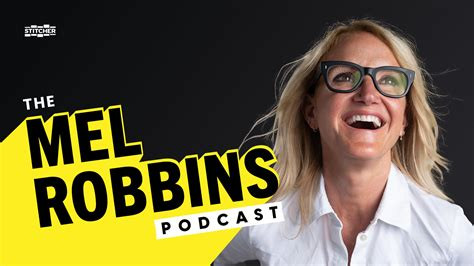In a recent episode of The Mel Robbins Podcast, host Mel Robbins engages with Dr. Alison Wood Brooks, a distinguished professor at Harvard Business School specializing in negotiation and communication. Their conversation unveils pivotal strategies for career advancement, from securing promotions to mastering high-stakes negotiations. Unlocking Career Success: Insights from Harvard Business School’s Top Professor.
The Art of Negotiation: A Fundamental Skill

Understanding the Negotiation Landscape
Dr. Brooks emphasizes that negotiation is an integral part of professional life, extending beyond salary discussions to encompass project responsibilities, resource allocations, and more. Recognizing opportunities for negotiation is the first step toward career growth. Unlocking Career Success: Insights from Harvard Business School’s Top Professor.
Strategies for Effective Negotiation
Unlocking Career Success: Insights from Harvard Business School’s Top Professor To negotiate successfully, preparation is key. Dr. Brooks advises professionals to:
Research Thoroughly: Understand the market standards and organizational norms related to your negotiation topic.
Articulate Your Value: Clearly communicate your contributions and achievements to justify your requests.
Practice Active Listening: Engage in dialogue to comprehend the other party’s perspective, fostering a collaborative atmosphere.
These tactics not only enhance negotiation outcomes but also build long-term professional relationships
Additionally, building strong habits around focus and prioritization can significantly support your negotiation effectiveness. You can explore on Time Management Tactics from Harvard Professors to learn how Harvard faculty structure their days for maximum impact.
Communication: The Keystone of Professional Influence & Unlocking Career Success
Crafting Clear and Persuasive Messages Unlocking Career Success: Insights from Harvard Business School’s Top Professor
Effective communication is paramount in establishing authority and influence within the workplace. Dr. Brooks highlights the importance of clarity and conciseness in conveying ideas, ensuring messages are understood and impactful.
The Role of Non-Verbal Cues
Non-verbal communication, including body language and eye contact, significantly affects how messages are received. Maintaining open body language and steady eye contact can project confidence and credibility.
To truly unlock career success and thrive in dynamic professional environments, it’s crucial to understand why soft skills matter as much as hard skills and how they complement your technical expertise.
Building and Leveraging Professional Networks Unlocking Career Success from Harvard Business School’s

Expanding Your Professional Circle
Networking extends beyond attending events; it involves cultivating genuine relationships. Dr. Brooks suggests seeking mentorship and collaborating across departments to broaden one’s professional network.
Providing Value to Your Network
Offering assistance and sharing knowledge with colleagues fosters reciprocal relationships, making others more inclined to support your career endeavors.
Overcoming Anxiety in Professional Settings

Recognizing and Addressing Anxiety
Anxiety can hinder performance in negotiations and presentations. Dr. Brooks recommends acknowledging these feelings and employing techniques such as deep breathing and positive visualization to manage them effectively.
Reframing Anxiety as Excitement
Transforming anxiety into excitement can enhance performance. By viewing high-pressure situations as opportunities rather than threats, professionals can approach challenges with a more positive mindset.
Conclusion
Implementing the insights shared by Dr. Alison Wood Brooks can significantly impact your professional trajectory. By honing negotiation skills, enhancing communication, expanding networks, and managing anxiety, you position yourself for sustained career success.
Additionally, consider exploring the following resources to further your professional development:
👉 Listen to the full podcast episode here: The Mel Robbins Podcast – Episode 277
👉How to Build a Strong Professional Network: https://business.linkedin.com/talent-solutions/blog/candidate-experience/2019/how-to-build-a-strong-professional-network
👉Harvard Business Review: https://hbr.org/
👉Psychology Today – Managing Anxiety at Work: https://www.psychologytoday.com/us/blog/optimizing-success/202105/overcoming-anxiety-at-work
👉Essential Negotiation Skills: https://www.betterup.com/blog/negotiation-skills
How can I improve my negotiation skills at work?
You can improve your negotiation skills by doing your research, practicing active listening, and clearly communicating your value. Try role-playing common scenarios and refer to MindTools' negotiation guide for actionable strategies.
Why is reframing anxiety as excitement helpful in your career?
According to Dr. Brooks, your body responds similarly to anxiety and excitement. By saying, “I’m excited,” instead of “I’m nervous,” you can shift your mindset, improve performance, and reduce fear before high-pressure tasks like presentations or interviews.
How do I build confidence to speak up at work?
Start by practicing assertive communication, reducing self-doubt phrases like “I think,” and replacing them with clear, confident language. Watching Amy Cuddy’s TED Talk on body language is also a great place to learn how posture and tone affect confidence.
What's the best career advice you've ever heard?
"Don’t wait to feel confident — take action first, and confidence will follow."
This idea, shared by motivational speaker Mel Robbins, flips traditional thinking on its head. Instead of waiting to feel “ready,” you grow through doing. Whether it’s applying for a job, speaking up in a meeting, or asking for a raise — taking that first small step builds the momentum you need to succeed.
It’s a reminder that confidence is not a requirement to begin — it’s a result of showing up consistently, even when it’s uncomfortable.
Which is more important for career answer?
While competence (skills, education, experience) is undeniably important, confidence is what helps you speak up, take risks, and advocate for yourself — even when you’re still learning.
In the podcast, Dr. Brooks explains that many people wait until they feel 100% ready before acting. But the most successful professionals take action before they feel fully prepared. Confidence, it turns out, is often the catalyst for growth — not just the outcome of it.
🔑 Takeaway:
-
Build your competence — but don’t wait to feel ready.
-
Use confidence to step into the room, speak up, and claim your space.
-
Action leads to momentum, and momentum builds mastery.
This blend of self-belief and continuous learning is the real secret to long-term career success.
